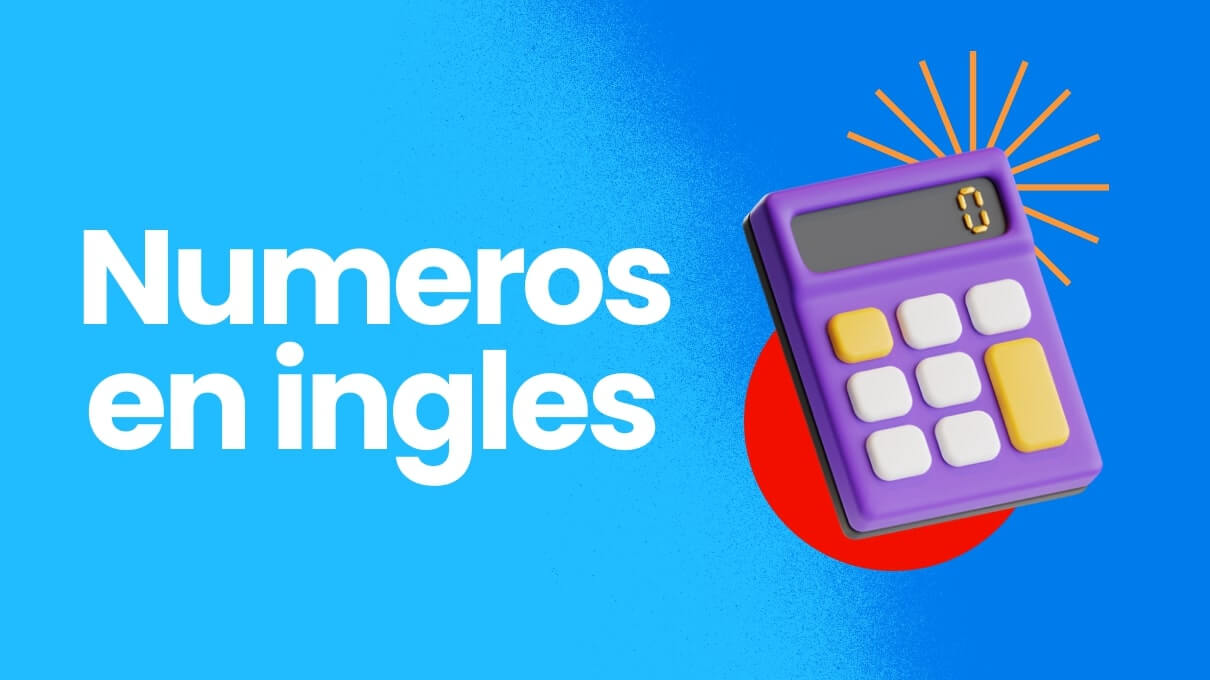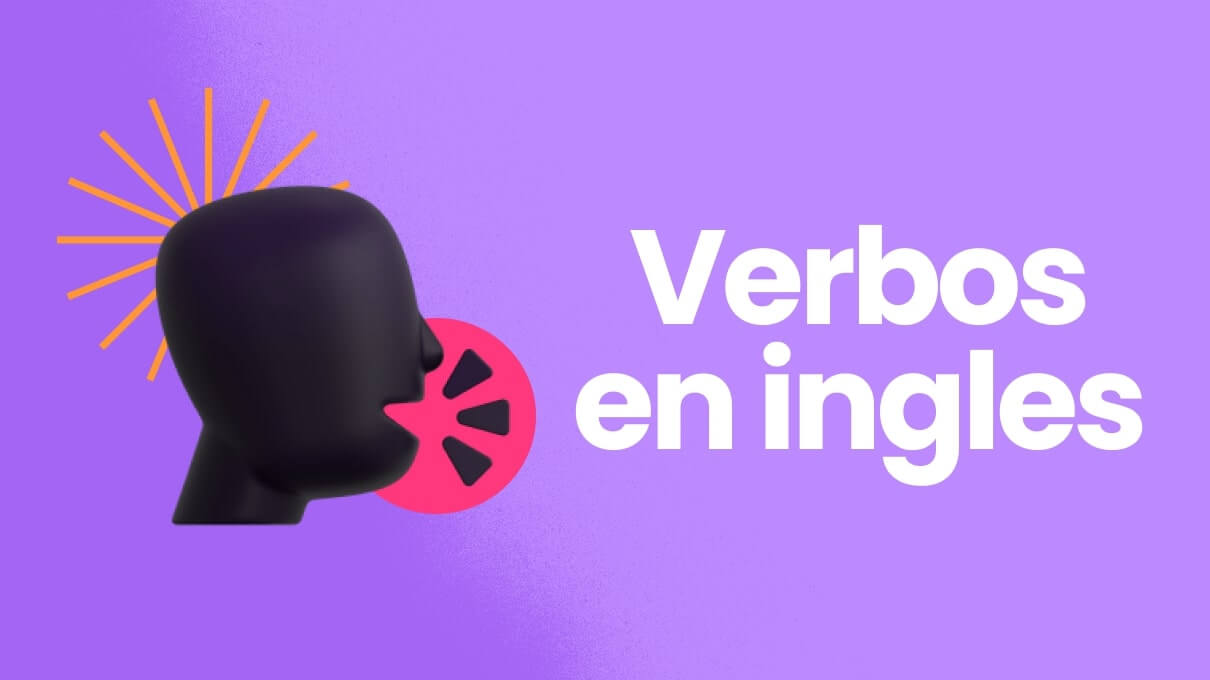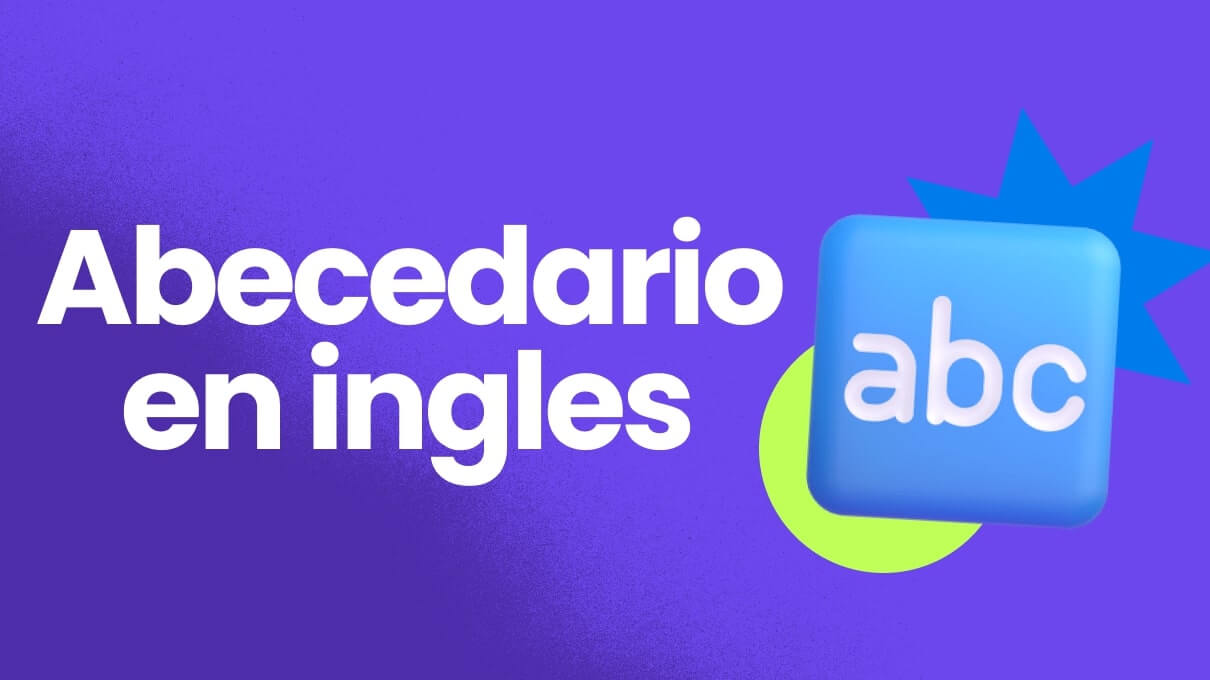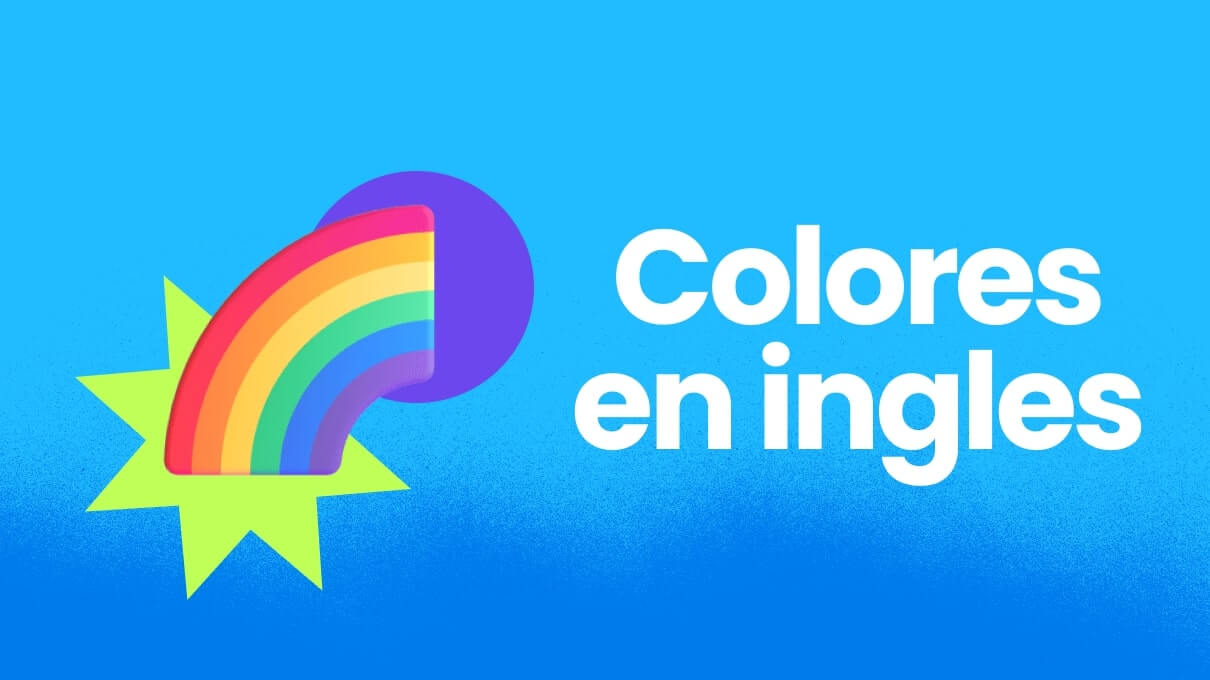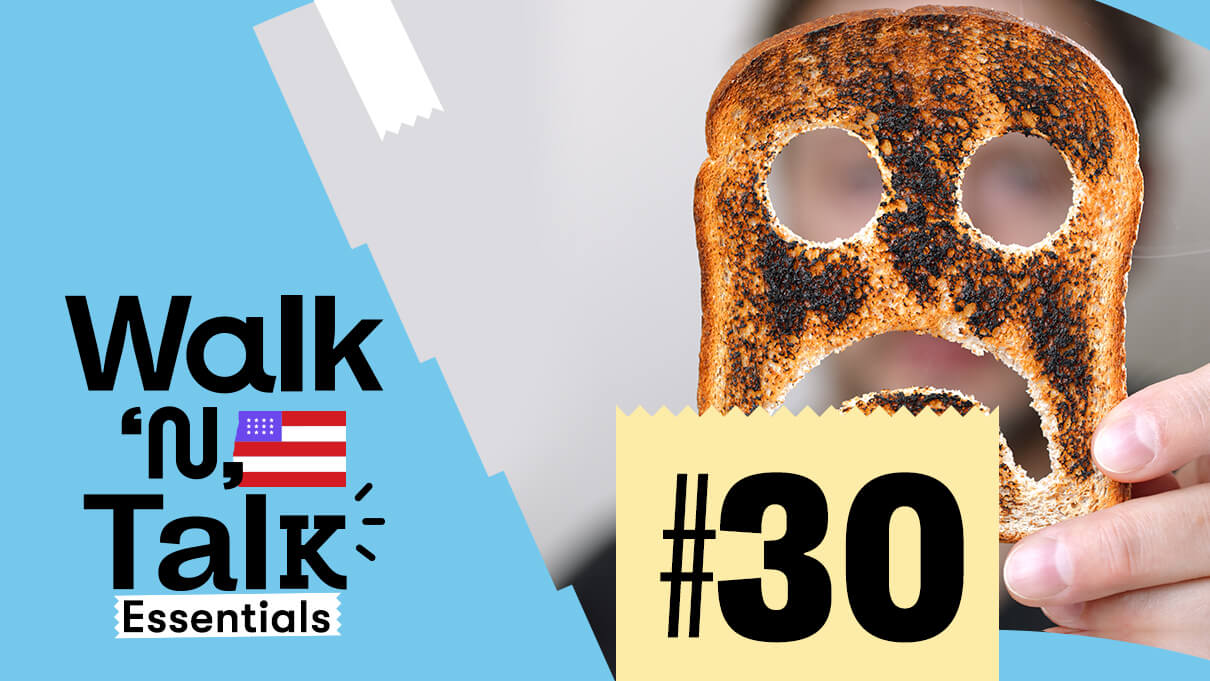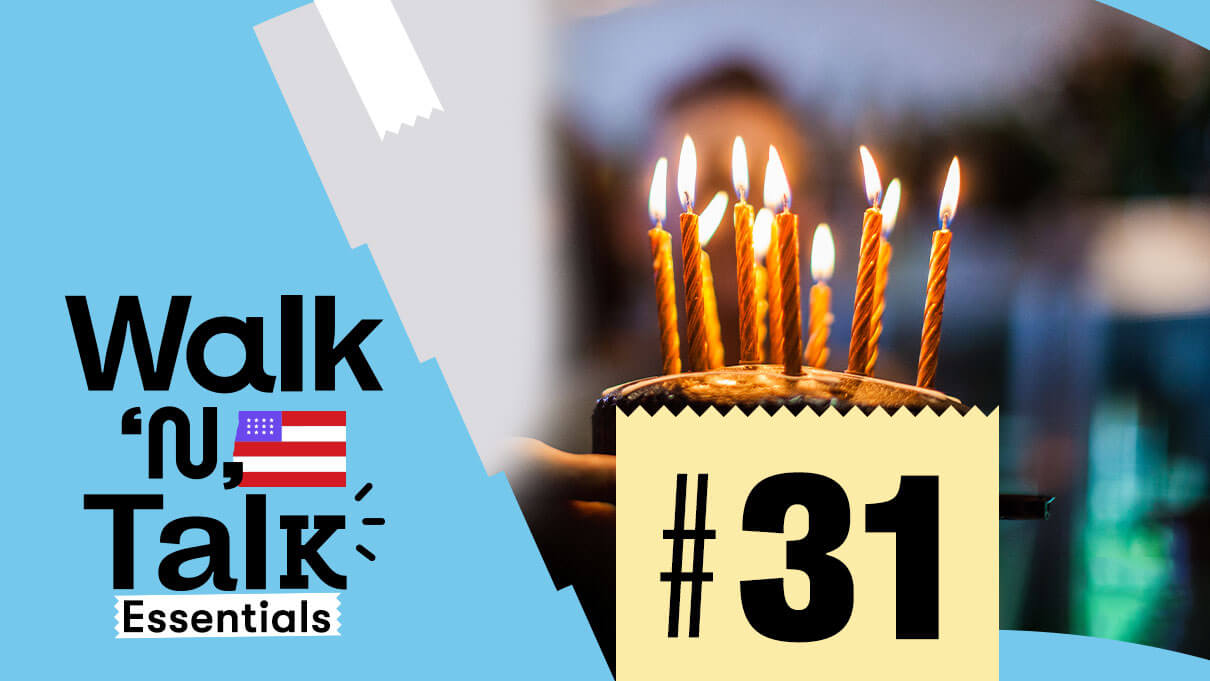Walk ‘n’ Talk Essentials #37 – Hacer diligencias
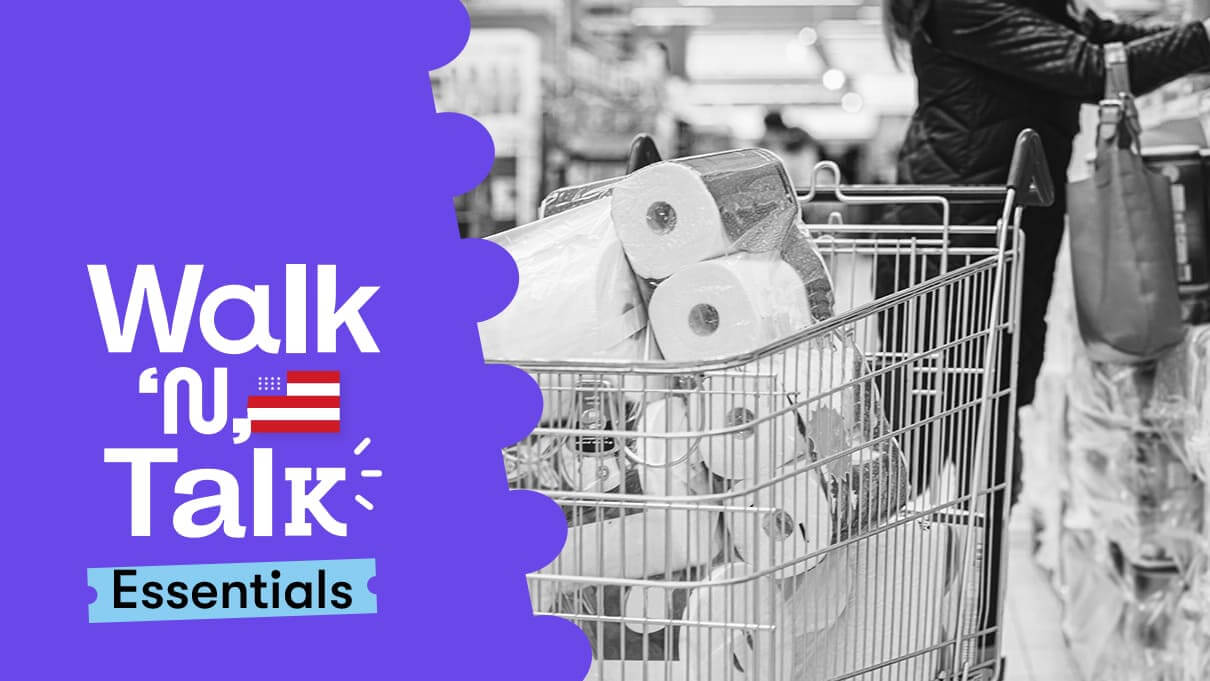
Hey!
En este episodio aprenderás algunas frases y vocabulario relacionado con algunas diligencias comunes en nuestra vida cotidiana.
También aprenderás otra forma de hablar del futuro y cómo reaccionar a una noticia o a un comentario. Igualmente, sabrás cómo decir que te quedaste sin algo o que se te acabó algún producto.
Por último, conocerás un uso bastante común del verbo get.
Enjoy the episode!
Dialogue | Diálogo
A: Are you busy this afternoon?
B: I have to run some errands. Why?
A: Oh, nothing. I’m just bored.
B: Do you wanna come with me?
A: Sure, what are we doing?
B: We’re out of toilet paper, so I need to buy that. I also have to pay some bills and withdraw money at the bank.
A: Sounds exciting. [sarcastic voice]
B: I know! Oh, I also want to get some snacks for the weekend.
Translation | Traducción
A: Are you busy this afternoon?
¿Estás ocupada esta tarde?
B: I have to run some errands. Why?
Tengo que hacer algunas diligencias. ¿Por qué?
A: Oh, nothing. I’m just bored.
Ah, nada. Solo estoy aburrido.
B: Do you wanna come with me?
¿Quieres venir conmigo?
A: Sure, what are we doing?
Claro, ¿qué vamos a hacer?
B: We’re out of toilet paper, so I need to buy that. I also have to pay some bills and withdraw money at the bank.
Nos quedamos sin papel higiénico, así que tengo que comprarlo. También tengo que pagar algunas facturas y sacar dinero en el banco.
A: Sounds exciting.
Suena emocionante. [voz sarcástica]
B: I know! Oh, I also want to get some snacks for the weekend.
¡Lo sé! Ah, también quiero comprar algunos bocadillos para el fin de semana.
Expanding vocab! | Expandiendo el vocabulario
Llegó la hora de expandir tu vocabulario con otras frases y palabras relacionadas con lo aprendido en el diálogo.
Algunos usos del verbo “to run”
They run around the neighborhood every morning.
Ellos corren todas las mañanas alrededor del barrio.
Someone left the tap running.
Alguien dejó el grifo abierto.
We’re running out of tea. Can you buy it later?
Nos estamos quedando sin té. ¿Puedes comprarlo más tarde?
Sarah runs the new hotel in the city.
Sarah dirige el nuevo hotel de la ciudad.
Formas de reaccionar
Sounds great!
¡Suena genial!
Sounds interesting.
Suena interesante.
I can’t wait!
¡No veo la hora!
Sure thing!
¡Claro! / ¡Por supuesto!
Podemos usar el presente continuo (verbo to be + -ing) para hablar de algo que ya tenemos planeado. Veamos algunos ejemplos:
Are you coming to celebrate with us?
¿Vendrás a celebrar con nosotros?
What are you doing today? Can you come with me to the supermarket?
¿Qué vas a hacer hoy? ¿Puedes acompañarme al supermercado?
I’m visiting my grandmother tomorrow.
Visitaré a mi abuela mañana.
We’re going to the new Korean restaurant on Saturday. It looks delicious.
El sábado iremos al nuevo restaurante coreano. Se ve delicioso.
Vocabulario relacionado con compromisos de la vida diaria:
Doctor’s appointment (cita con el médico)
Grocery shopping (hacer las compras)
Fill up the car (llenar el auto de gasolina)
Send a package (enviar un paquete)
¿Qué tal si escuchas el episodio una vez más para afianzar los nuevos conocimientos?
I hope you enjoyed this episode! Fue un placer estar aquí contigo en Walk ‘n’ Talk. I’ll see you on the next one!
Playlist














